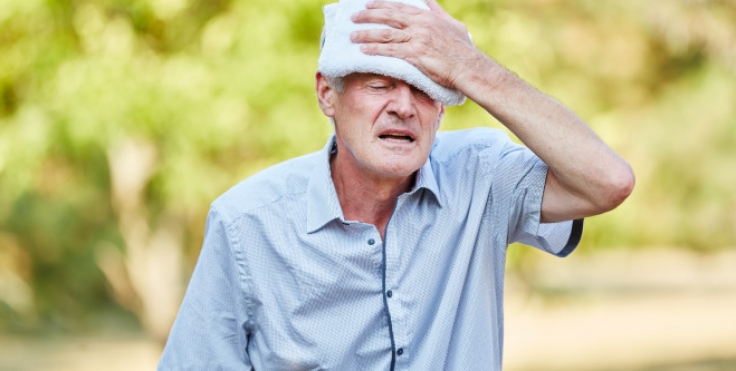Mike Barr is an incontinence specialist and founder of www.MedproDirect.net. He has been writing on a wide range of topics related to senior care for more than 10 years now.
Elderly people are often more prone to dehydration and addressing dehydration in seniors is a competency anyone who works with elderly people should have
There are a wide range of complicating factors associated with age when it comes to staying adequately hydrated. Elderly people often have trouble with hydration because of things like swallowing disorders caused by stroke, being bedridden, drinking less out of a fear of incontinence issues, or from taking multiple different medications. If you are someone who works with the elderly, or spends a considerable amount of time around elderly friends or family members, below are some tips for dealing with dehydration.
Encourage frequent, but small drinks
As people age, there is a significant shift in the amount of water our body demands, as well as the body’s thirst response throughout the day. Older people can often go for seemingly extreme amounts of time without feeling the need to drink, despite their bodies requiring hydration. Rather than counteract this with periodic massive intakes of liquid, encourage elderly people to consume small, but frequent drinks throughout the day.
If you are worried that an elderly person under your care might not remember to take these drinks, or sips while you are not around, you might consider setting up a timer notifying them (and you) that it is time to replenish their liquids.
Limit coffee and alcohol
If the elderly person, or people you are around is consuming a lot of coffee or alcohol throughout the day, they are also going to be losing a lot of water. Alcohol and caffeine are diuretics, which prompt us to urinate. If the body is getting rid of more liquid than it is taking in, dehydration becomes an inevitability.
Placing restrictions on what a person can and cannot have is often necessary. However, if you feel confident an elderly person is able to make responsible decisions about what and when they drink, simply investing in a good BPA-free water bottle, that you ensure is always full, is often a sufficient countermeasure.
Keep electrolytes on hand
Dehydration is not just a matter of water loss. Along with dehydration comes the depletion of essential salts and minerals in our bodies. It is why athletes who starve, and purge themselves of water in order to cut weight for competitions immediately gulp down electrolyte-enhanced fluids as soon as they’ve left the weigh-in.
Electrolyte powders and salts come in a variety of flavours and types and can be easily purchased from local pharmacies. Having a box of electrolyte crystals or powders to mix into water or juice could help decrease the severity of dehydration if you ever have to deal with it.
Talk to the elderly about proper hydration
The fact remains, many elderly people are simply unaware of the unique causes of dehydration in old age and what to do about them. Working or living with elderly people means helping them understand how to manage their health and well-being, and empowering them to look after themselves as much as possible.
Keep the above considerations in mind when addressing and managing dehydration in elderly people, and ensure that those who have cared for us get the same compassion and understanding in return.
To read more on topics like this, check out the lifestyle category.

Leave a Reply